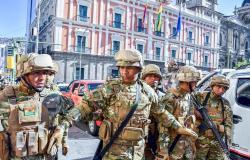NEUQUEN
According to what was written in his books “Neuquén, its history, geography and toponymy”, Dr. Gregorio Álvarez – my professor at the University, in the History of Neuquén chair – highlights that one of the expressions of culture in Chos Malal , capital of the national territory of Neuquén, was journalism.
It was in that city that the first of the newspapers that Neuquén saw, “La Estrella de Chos Malal”, appeared. Then the second newspaper was published, “Neuquén”, founded by José Cámpora. This newspaper was forced to stop appearing until after the current capital was founded, where it was reborn under the direction of Abel Chaneton. Next, “La Cordillera” appeared, founded by Edelman, a pamphlet that achieved great dissemination and notoriety because it made known the various aspects of the then territory.
Some time later, in 1965, the newspaper “Sur Argentino” would appear, among many others.
In the Commemorative Album of the 9 lustrums of the capital edited by Otto Max Neumann, whose emblematic printing press was located on Diagonal 25 de mayo 118, it is established that on November 7, 1908 the first press organ of the young woman made its initial appearance. capital of Neuquén, “Neuquén” under the direction, as we said, of Abel Chaneton, and with the printing press and administration of José Edelman, who had established the first printing press in the area, inaugurated in 1906.
In the photo we see a template of the aforementioned newspaper, in the possession of the descendants of Abel Chaneton. The newspaper operated from its home located at 76 Río Colorado Street (current CH Rodríguez Street).
In 1913, the Neuquén Newspaper began to be published daily and on Monday, February 21, 1916, the first issue appeared with a new expanded format of 56.5 cm by 41 cm. On Saturday, June 10 of that year, the newspaper began to be published as a morning newspaper. This newspaper was well received: the initial edition consisted of three hundred copies, and to celebrate the event, stun bombs were fired. The founders were treated to a Creole barbecue.
We share the testimony of Don Ángel Edelman about his father José, about the printing of the first copies: “To print them in a larger format than the minerva (small typographical machine) allowed, my father had bought and used a primitive press at that time. , Gutenberg type, hand roller inking and arm pressure lever.
The skeleton of that machine, which I can call historic for Neuquén, is preserved at home, like a silent evocative memory.” […] “I also partially preserve, although deteriorated, the accounting books of the first journalistic company started in this capital that my father personally managed with his professional expertise, using the double-entry system.”
Don Ángel Edelman continued his story by talking about the personality of Don Abel Chaneton: “In the newspaper I highlighted with facts the temper of manliness, the talent and the ardor for justice, unbribable, quixotic, of the great journalist and public man from Neuquén, who led him to immolate himself in a journalistic campaign that shocked the country, to the point that President Irigoyen sent the Minister of the Interior himself to investigate the events.
I remind the reader that Don Abel Chaneton was the one who denounced the shootings that occurred during the escape of the U9 prisoners in Zainuco, in 1916. He was murdered in the “Bar Alegría” in the capital of Neuquén.
Edelman continues with his story: […] “In that first journalistic company, my father, José Edelman, had a renowned performance; like Mario F. Donato, brilliant bohemian journalist; to whose names we should add Juan B. Aranguren, Cesáreo Fernández Pereiro, among others, champions of the pen and the combative thought who followed them in identical desires of struggle and sacrifices.”
On the occasion of editing Gazeta 1810, Mariano Moreno said: “The people have the right to know the conduct of their representatives. The people should not be content with their leaders doing well: they should aspire to ensure that they never do wrong; “so that his passions have a firmer dam than that of his own virtue.”
With these words we want to pay tribute to all the journalists in their day, who paved the way starting with the Gazeta de Buenos Aires; Their opinions tried to be silenced, silenced; but the truth should not and cannot be silenced.





